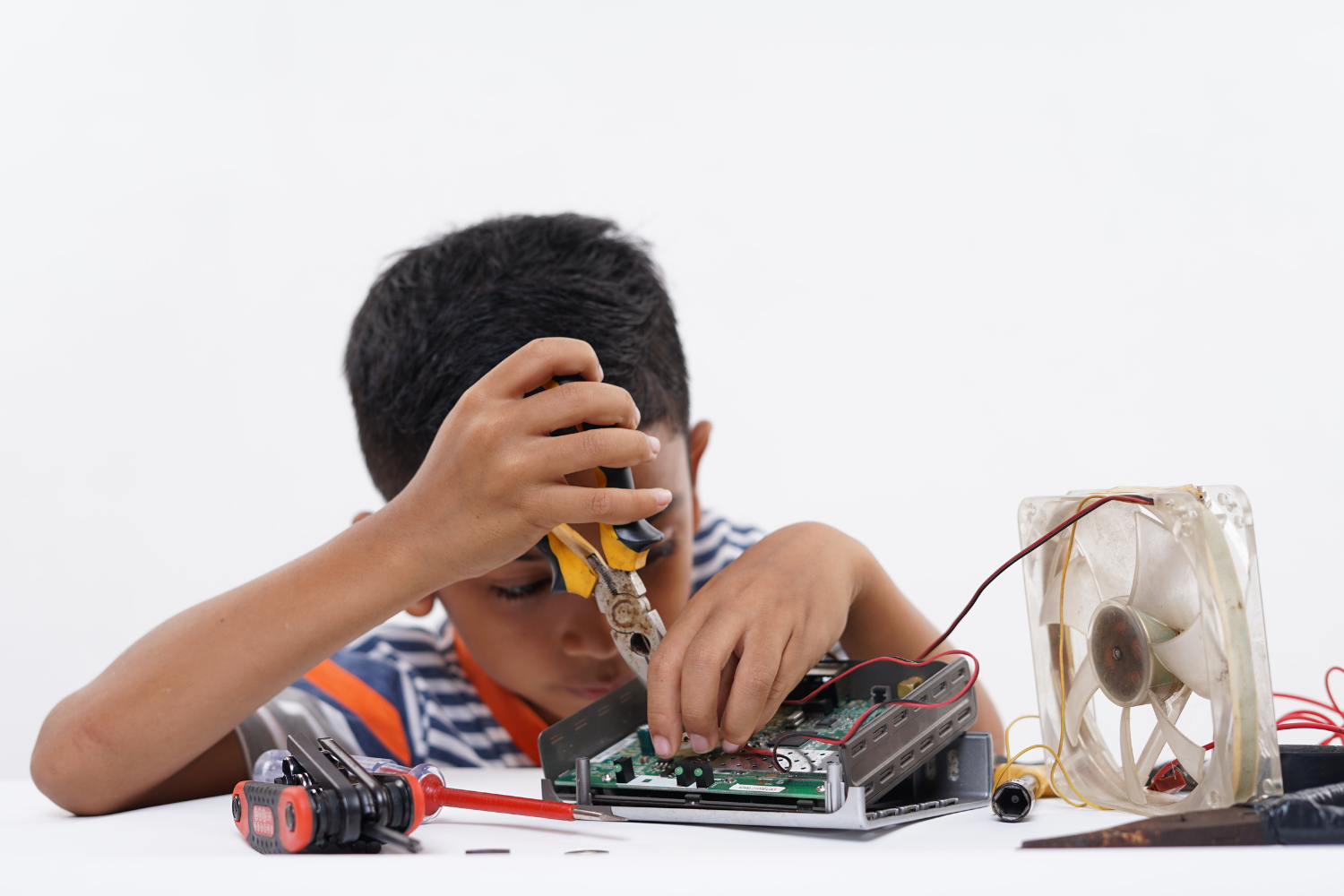There are many advantages to homeschooling, and one of them is leadership.
When done right, homeschooling your kids should lead them to a state of personal sovereignty, a word John Taylor Gatto used often. In other words, raise your kids to march to their own beat, or, as John liked to advise us, to be the writer of their own script.
“You either learn your way towards writing your own script in life, or you unwittingly become an actor in someone else’s script.”
There are a few strategies to know if you want to reach this goal which I’ll share with you. These strategies will assist you in giving your child a serious education, not a public-school education
#1 Know your objective
Assuming your long-term objective is to provide your child with an excellent education and the tools to think independently, you want to be clear about his educational goals.
For each school year, you will need to know what you want your child to accomplish for that year. For each subject, you will need to decide what your child should learn about that subject.
Don’t cut any corners here as planning is everything.
A lot of thought should go into you homeschool plan. If we are going to reach any goals in life, we must be intentional and have a map of how we will get there. Intentional homeschoolers plan out the school year and know their end-year objectives.
#2. Be Flexible
Your child will become interested in subjects you may not have anticipated. Even though you have prepared a homeschool plan, you've got to be flexible enough to shift when the winds change direction.
Any time your child becomes interested in something, that's when you want to teach it. We learn best when we are motivated to learn. A desire to know something motivates us.
There are things your child must know, such as how to read. There is no way around it, but there are things you will not have on the schedule that he may show an interest in. Usually you can be more flexible with subjects, such as science, history, and literature.
Adjust your schedule to your child’s interests when it makes sense to do so. This should not interfere with your goals, but enhance them.
#3 Have High Expectations
Don't expect mediocrity from your child. Let me tell you a story to illustrate this: I met two brothers in a hotel in Gocek, Turkey; a yachting town on the Mediterranean. They were from Israel, and they were somewhere in their 70's.
Gocek, Turkey, 2020
I was having breakfast when they sat down at the table next to me. We got to chatting about how the Jewish people are known for being very intelligent. They said it was because they had superior genes! I asked them to tell me about their childhoods.
I explained that I worked in children's education and, contrary to what they thought, I didn’t believe that they possessed superior genes! Jewish children must be raised in a way that nurtured their intelligence.
Both of their faces lit up, and they said passionately, "Our mothers drill it into us from an early age that we are going to grow up to be an engineer or a doctor or something of importance. We are raised to understand that anything short of this isn’t an option!"
They were laughing as they said it, but it was obviously an impressionable part of their childhood. They were raised to reach the top. Mediocre expectations were not a part of their upbringing.
With all due respect to natural ability, people who excel often do so because it was expected of them or someone inspired them to excel when they were young.
“I’ve come to believe that genius is an exceedingly common human quality, probably natural to most of us. ”
#4 Know what to teach
Most of us went through the public school system. Consequently, our standards for an education are naturally low. Without knowing what a serious education looks like, it's natural to adopt a public-school-at-home model of homeschooling.
Warning: you do not want to recreate public school at home!
“That seemed crazy on the face of it, but slowly I began to realize that the bells and the confinement, the crazy sequences, the age-segregation, the lack of privacy, the constant surveillance, and all the rest of the national curriculum of schooling were designed exactly as if someone had set out to prevent children from learning how to think and act, to coax them into addiction and dependent behavior.”
You want to understand the subjects a child should learn and the books a child should learn from. This is a whole other topic, but let me say that a thorough knowledge of grammar would be a good place to start, something that is no longer taught in public school.
Which means that if you want to give your child an excellent education at home, you have to opt-out of any public-school-related programs and do it yourself.
#5 Enjoy homeschooling
As the teacher to your child, you want to enjoy teaching your child. If you don't, your child will sense this, and it will put a damper on his experience of learning. You want to nurture your child's love of learning instead by being passionate about learning yourself.
If you aren't enjoying teaching your child, it's probably because you haven't found the sweet-spot in homeschooling. It's there, you just need to discover it.
“The art of teaching is the art of assisting discovery.”
Start by recognizing the magnitude of what you are doing: you are educating your child. What more noble task is there?
Acknowledge your courage and your dedication to your family. Focus on the positive aspects of homeschooling and avoid harboring thoughts of all that you have to do today. Our “to-do” lists are always too long. Set realistic daily goals and check them off as you complete them for a quick boost of happiness.
Keep in mind that even if you weren't homeschooling, you'd still have a lot to do. You may have more free time when you kids are in school, but you'd quickly fill it up with other things.
When you’re homeschooling, you’re filling your time up with a service that will pay you back 100-fold for the rest of your life.
#6. Be content
Homeschooling is a service we provide to our children. It takes up our time and it takes up our energy. It's important to structure our days and weeks so we don't get burned out and lose our motivation.
It's important to build some fun time into your life that does't involve your children. What is it that you enjoyed doing before you had children? What is is that relaxes you and boosts your mood?
Whatever it is, make sure you schedule it into your week.
There is nothing worse than a cranky homeschooler, and you'll become cranky if you don't fill your own reserves at least once, if not twice a week.
A friend once said to me, "Life is difficult, but it should be enjoyed." There will be difficult days when you homeschool.
There are always difficult days no matter what we do.
But overall, you want to enjoy it. If you enjoy homeschooling, your children will enjoy it, too.
And they will learn to write their own script in life.
Don’t miss our free download, Ten Books Every Well-Educated Child Should Read.
Become a Smart Homeschooler to raise smart, ethical, and critically-thinking children. Join the Smart Homeschooler Academy online course and feel secure knowing that you have what you need to homeschool successfully.
For parents of children under age seven who would like to prepare their child for social and academic success, please begin with our online course, Raise Your Child Well to Thrive in Life and Excel in Learning.
Elizabeth Y. Hanson is an Educator, Homeschool Emerita, Writer, and a Love and Leadership Certified Parenting Coach with 20+ years of experience working in children’s education.
Utilizing her unusual skill set, coupled with her unique combination of mentors, Elizabeth has developed a comprehensive understanding of how to raise and educate a child. She devotes her time to helping parents get it right.
☞ Disclaimer: This is not a politically-correct blog.














































































